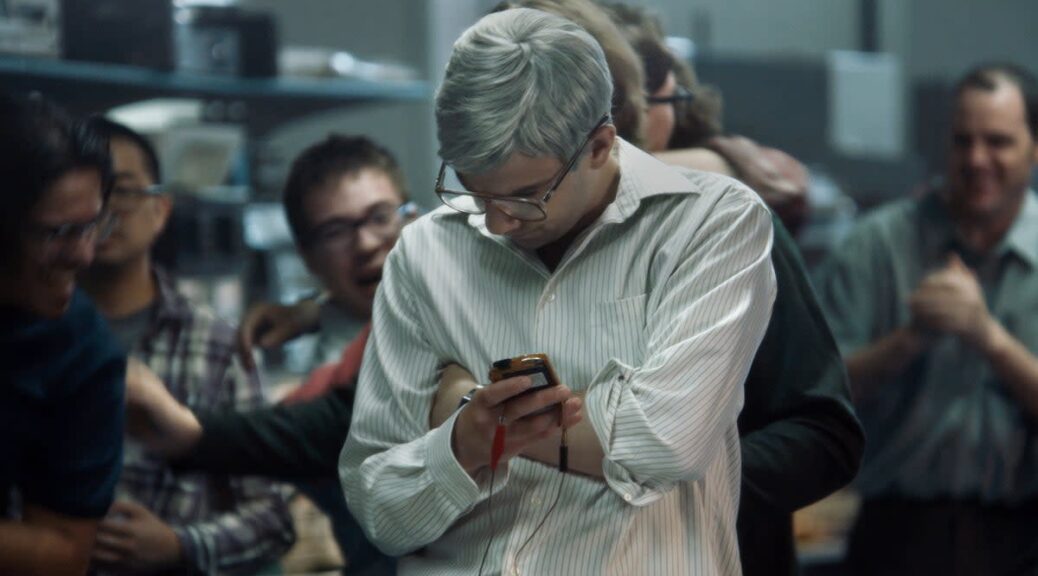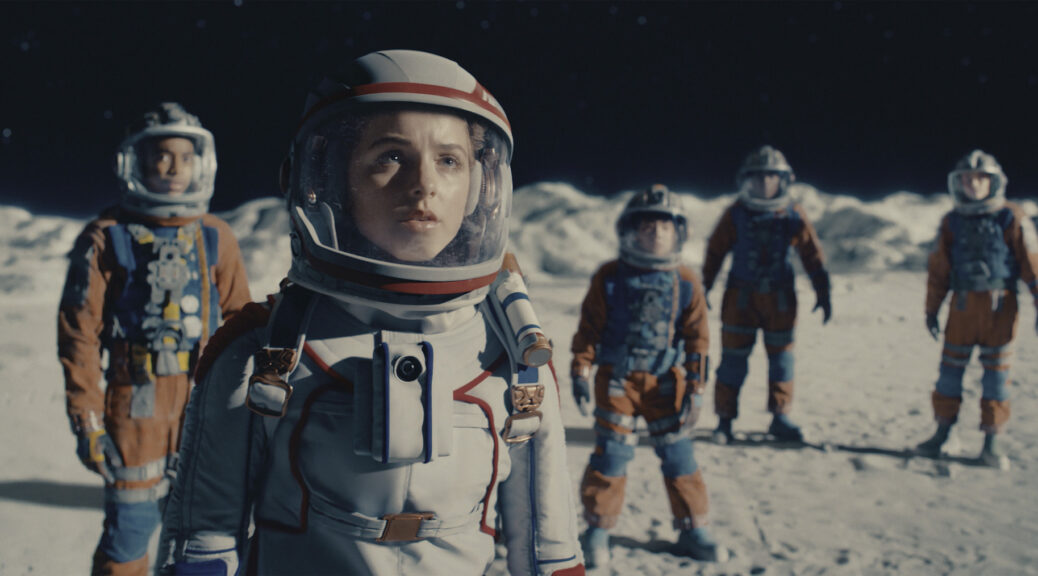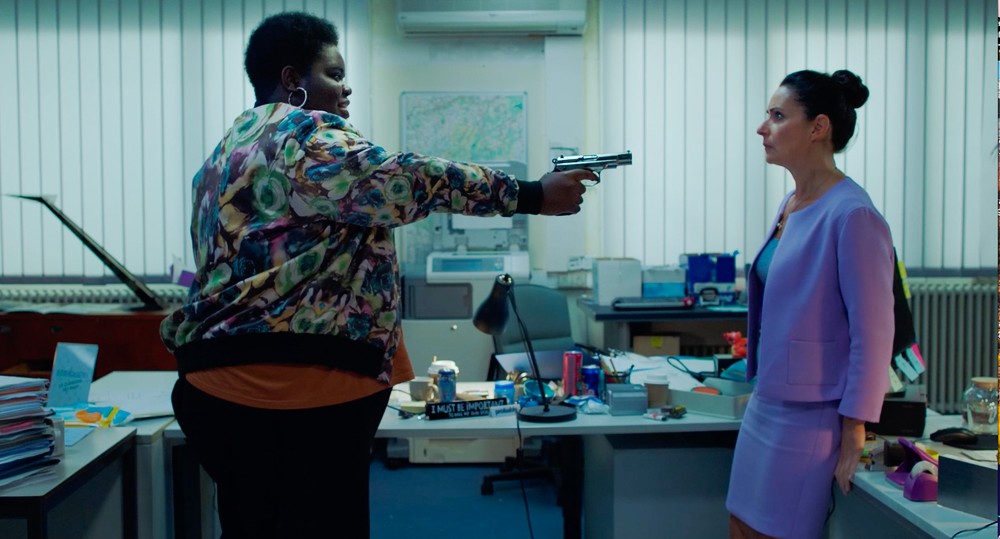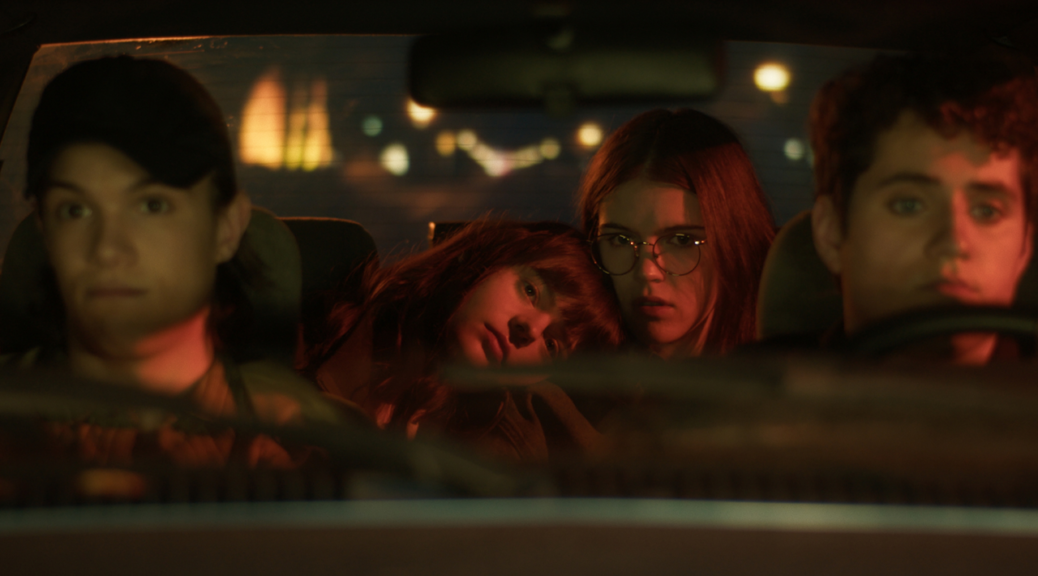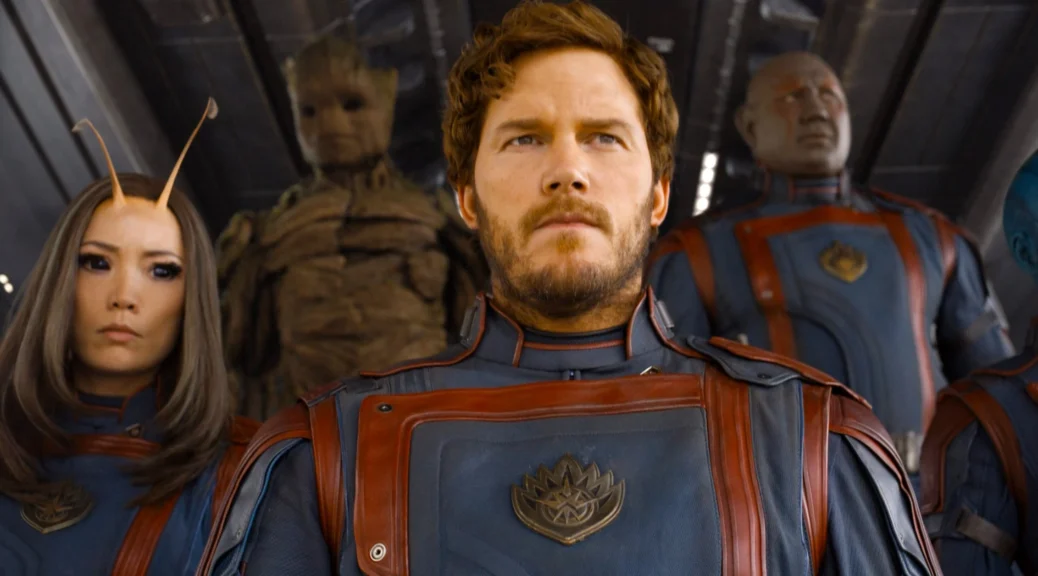BlackBerry
by George Wolf
So, a voice on the line says, “You have a collect call from ‘What the f%& is happening’!”
That’s not really the caller’s name.
He’s actually Jim Balsillie (a terrific Glenn Howerton), co-CEO of BlackBerry Limited, and he’s having yet another temper tantrum. The pairing of Balsillie’s bare-knuckled business sense with the tech genius of other CEO Mike Lazaridis (Jay Baruchel, perfectly awkward) made the company an early leader in the cell phone game, but things have started to unravel. Fast.
It’s a wild and often unhinged rise and fall, told with gleeful abandon by BlackBerry director and and co-writer Matt Johnson, who also co-stars as Doug Fregin, Lazaridis’s original business partner.
While operating a Canadian tech supply company called Research in Motion in 1996, Lazaridis and Fregin hatched the idea of utilizing North America’s unused bandwidth for a cellphone with built-in capability for email and messaging.
Balsillie, a Harvard-educated d-bag with self promotion tunnel vision, knew what the geeks had, and gave them his business street smarts in exchange for a big piece of the pie.
Johnson (Operation Avalanche) draws the battle lines early, framing the unfocused nerds with jittery, The Office-style camerawork amid chaotic workplaces while the calculating, take-no-prisoners suits live within crisp lines, confident movement and unforgiving architecture.
The colliding of worlds is engaging enough, but the delightfully sharp humor and first-rate ensemble (also including Michael Ironside) turn these based on true events into a rollicking, can’t-look-away slice of history.
There’s so much here that resonates – friendship, ambition, cutthroat capitalism and just feeling like an outcast. And at the root is the push and pull of commerce (Balsillie: “Are you familiar with the saying, ‘perfect is the enemy of good?”) vs. science (Lazaridis: “Well, ‘good enough’ is the enemy of humanity.”)
BlackBerry is a fast, funny and often thrilling ride, one that ends up worthy of both time spent and time capsule.
